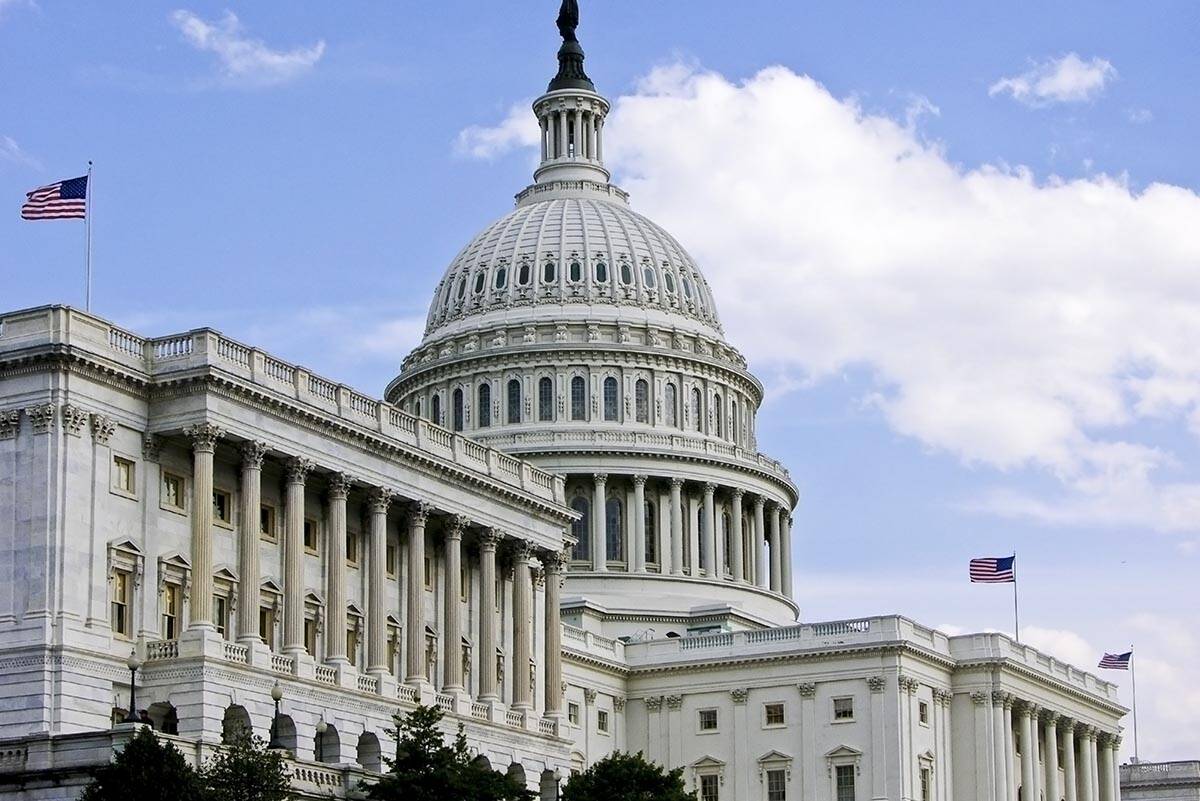EDITORIAL: Federal spending binge means more fraud, waste
With his poll numbers crashing and inflation soaring, President Joe Biden signed the $1 trillion infrastructure bill on Monday. “My message for the American people is this: America’s moving again, and your life’s going to change for the better,” Mr. Biden said during a White House ceremony touting the legislation.
The president hopes the measure helps him reverse his political fortunes after months of missteps, but that’s a tall order. Only a small percentage of the spending will actually go toward fixing roads, bridges and other traditional infrastructure. And thanks to this administration’s infatuation with regulation, many of the projects will take years to get off the ground.
But one thing is certain: If history has taught us anything about government spending initiatives of this magnitude, it’s that the waste and fraud will be significant.
Together with the $1.75 trillion Build Back Better mishmash of new progressive entitlements, the spending binge could reach $3 trillion. “Some of the money will undoubtedly be lost to fraud,” Jetson Leder-Luis, a Boston University economist, wrote last week for The Conversation. “How much is impossible to predict, but I believe a reasonable estimate based on past spending and research would put it at around 5 percent, or $150 billion.”
Mr. Leder-Luis notes that “improper payments totaled $175 billion in 2019, about 4 percent of all government spending.” Recent experience with pandemic-related initiatives such as expanded unemployment benefits and the Payment Protection Program shore up such estimates, as fraud into the billions of dollars was rampant.
This is a bipartisan problem. Nor is it any secret. After signing the infrastructure bill, Mr. Biden announced the formation of a task force to track the spending and to ensure the money is used “efficiently,” The New York Times reported. But will the panel amount to anything more than window dressing?
“The federal government is not powerless to prevent and detect fraud,” Mr. Leder-Luis notes. Among its most potent tools: protecting whistleblowers, forensic audits and aggressive prosecutions against those who are suspected of stealing or misappropriating taxpayer funds.
But the infrastructure package “includes very little language aimed at fighting fraud,” Mr. Leder-Luis reports. “An effort to include stronger provisions for whistleblowing … failed. … Lawmakers would be wise, given how much they plan to spend over the coming years, to include more anti-fraud language in large spending bills.”
That would indeed be prudent. And the Biden oversight committee must take seriously its charge by operating in a most transparent and diligent manner.






















